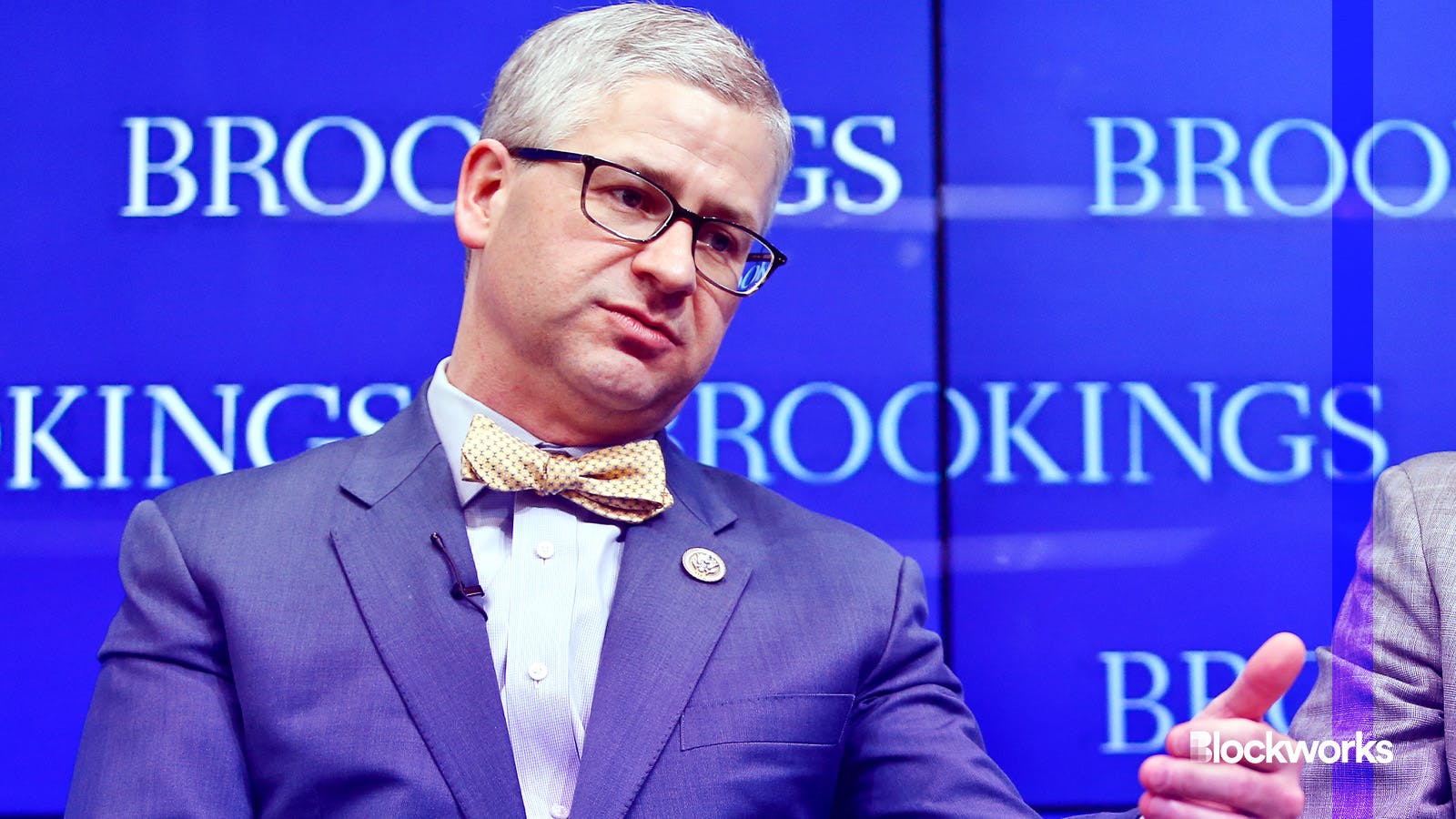House Committee passes resolution to block SAB 121
SAB 121 is controversial in the crypto space because it states that digital asset custodians should report a liability and “corresponding assets” on their balance sheets

House Financial Services Committee Chair Patrick McHenry | Paul Morigi/"Representative McHenry sharing his thoughts on fintech issues, as Klein looks on" (CC license)
The House Financial Services Committee on Thursday voted to advance a resolution attempting to appeal the Security and Exchange Commission’s Staff Accounting Bill (SAB) 121.
SAB 121, introduced in March 2022 and enacted the following month, states that digital asset custodians should report a liability and “corresponding assets” on their balance sheets for all custodied cryptocurrencies. The practice, SEC staff said, is intended to guard against the “significant risks and uncertainties associated with safeguarding crypto assets.”
Committee members Mike Flood, R-Neb., and Wiley Nickel, D-N.C., introduced the resolution earlier this month alongside a similar measure in the Senate spearheaded by Cynthia Lummis, R-Wyom. The legislators cited a report from the Government Accountability Office, which stated in an October 2023 report that SAB 121 should have been issued as a rule under the official process.
Read more: Bipartisan Congressional group tries to repeal controversial SEC crypto custody policy
“Unfortunately, there were some serious problems with the process around SAB 121 and how it was issued,” Rep. Flood said during Thursday’s markup hearing. “The SEC issued SAB 121 without conferring with the prudential regulators who are the experts on regulating bank custody. That’s a pretty significant oversight.”
While SABs are not enforceable rules under securities law, they are used by staff for interpretations and practices, the SEC said. Unlike traditional rules issued by the agency, SABs do not require public notice or comment periods and do not reflect the official approval of Commissioners.
Those against the resolution argue that SAB 121 adds an essential layer of consumer protection. Rep. Maxine Waters, D-Cali., a general vocal opponent of so-called crypto friendly efforts in the Committee, said efforts like SAB 121 help prevent fraud.
“This guidance was offered to protect investors against the mishandling of customer crypto assets by custodians, a practice that was at the core of FTX’s spectacular collapse when billions of crypto assets went missing,” Rep. Waters said Thursday.
The resolution passed Thursday in a vote 31-20, with all Republicans and three Committee Democrats voting to push the measure forward. Democrats in favor include Reps. Nickel, Ritchie Torres of New York and Josh Gottheimer of New Jersey.
The resolution would have to pass a full floor vote in the House and the Senate before SAB 121 is discarded.
Get the news in your inbox. Explore Blockworks newsletters:
- The Breakdown: Decoding crypto and the markets. Daily.
- 0xResearch: Alpha in your inbox. Think like an analyst.






